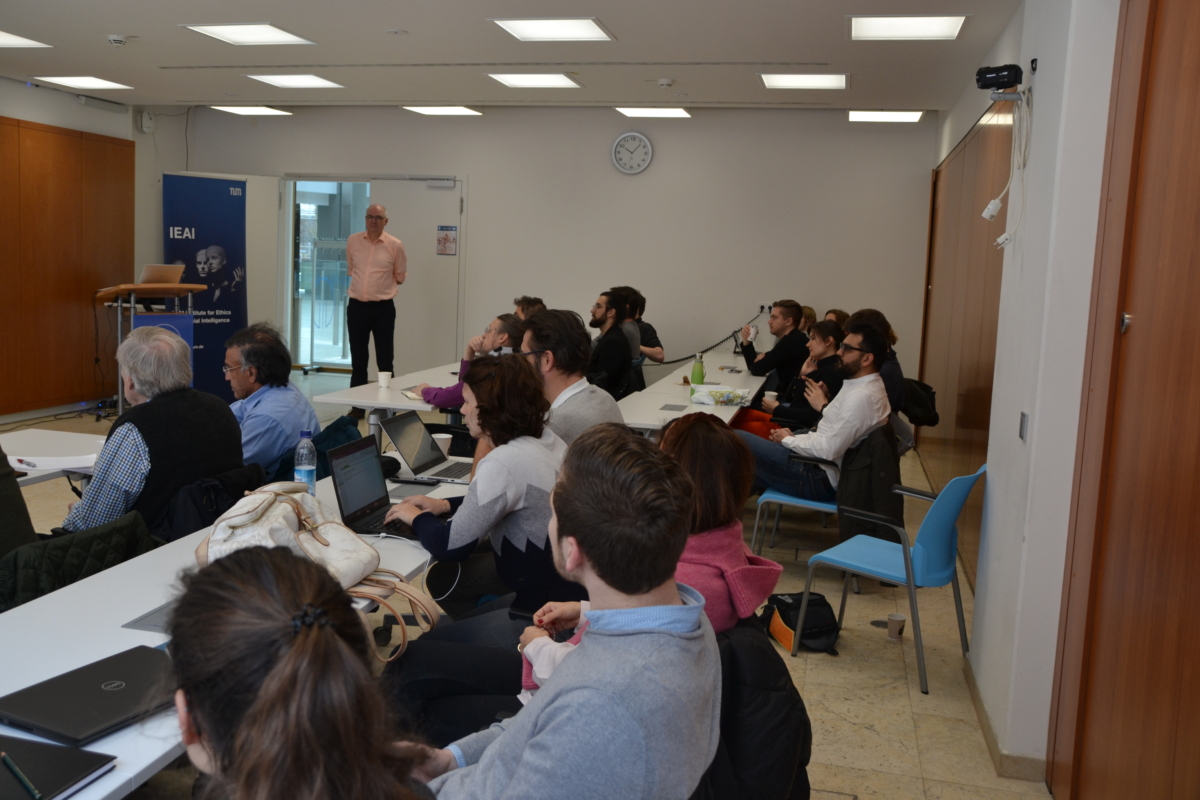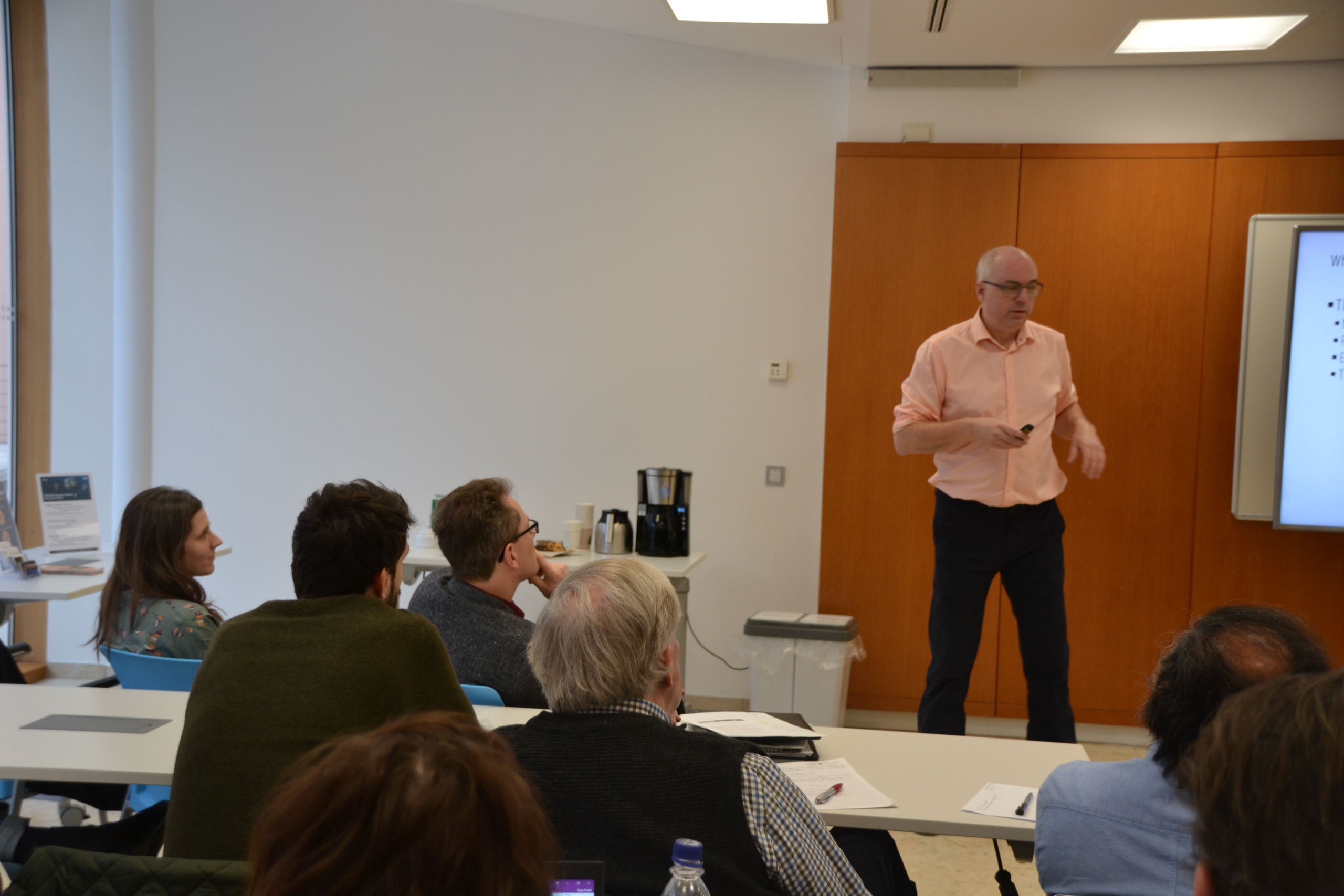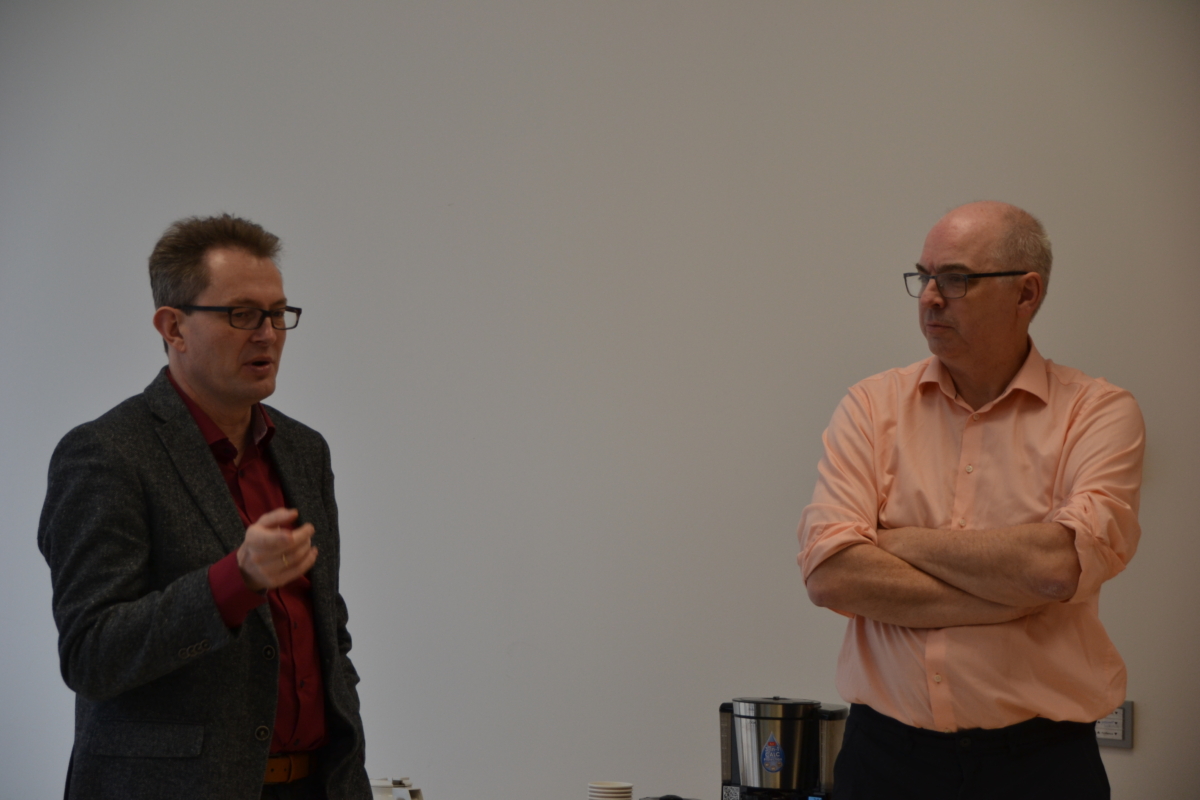It’s a numbers game
On 19 February 2020, Rolf Johansson from AID talked about the challenges of making autonomous vehicles safe at the third installment of the IEAI Speaker Series.
Autonomous Intelligent Driving GmbH (AID) is working on creating safe and reliable autonomous driving systems that will improve the life of millions. But what does safety with respect to driving actually mean? According to Rolf Johansson defining what is “safe” is crucial to implementing autonomous vehicles in our everyday lives. The questions arising include: How much risk is acceptable in a given society? How can companies communicate this risk? And to what extent can companies be held accountable?
Rolf Johansson’s simple answer is: it is a numbers game, and we as society need to actively decide on the numbers. It is a corporation’s responsibility to design autonomous vehicles that are at least as safe as decided by society, and to make this safety property evident before putting the vehicles on the market. Bad luck and surrounding conditions can be regarded as unpredictable factors but they could never be excuses for not reaching the agreed safety numbers. In order to create practicable and functioning autonomous driving systems one must accept that “safe driving” never can be an absolute. Instead, improved safety can be understood as significantly reducing the number and severity of accidents compared to human driving. This view corresponds with guidelines published by the German Ethic’s Commission on Automated and Connected Driving in 2017.
Dr Johansson argued that the way to achieve this is not by focusing on designing reactions to critical situations (which could lead to an unnecessary dilemmas, like the Trolley Problem, where there is no safe reaction left), but designing autonomous driving systems in a way that they proactively avoid critical situations altogether. This, however, will depend on if we are able to combine it with high customer value, which requires a lot more data, research and testing. AI based approaches can be useful in some of these tasks, but may not be appropriate for all of them. And the research questions in the field of AI must evolve to also support these tasks.
Rolf Johansson’s presentation was extremely thought provoking and highly illustrative of the challenges technological (and AI-based) developments encounter as they interact with a diverse and complex societies. We are excited to continue our discussions on autonomous driving at several upcoming IEAI events this year.




